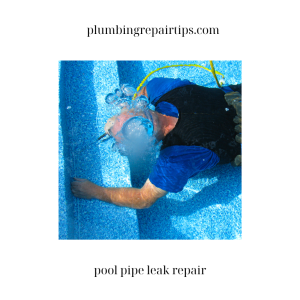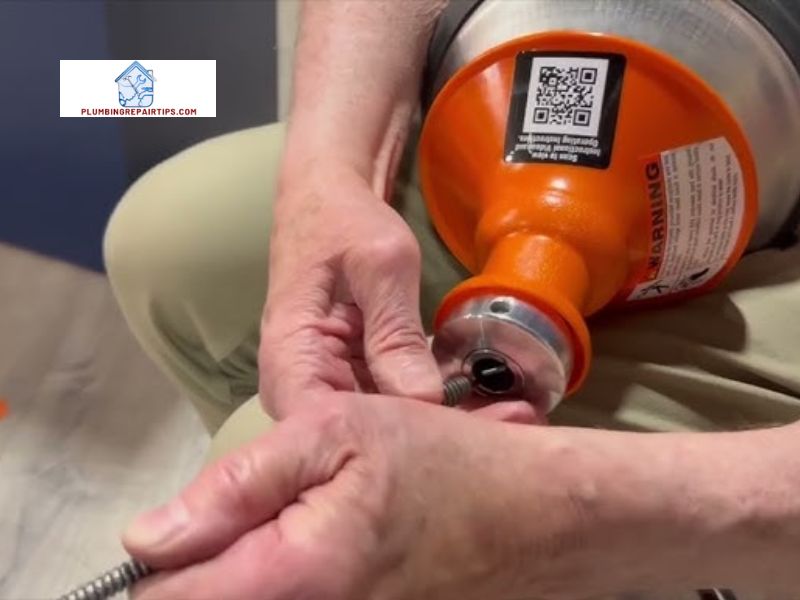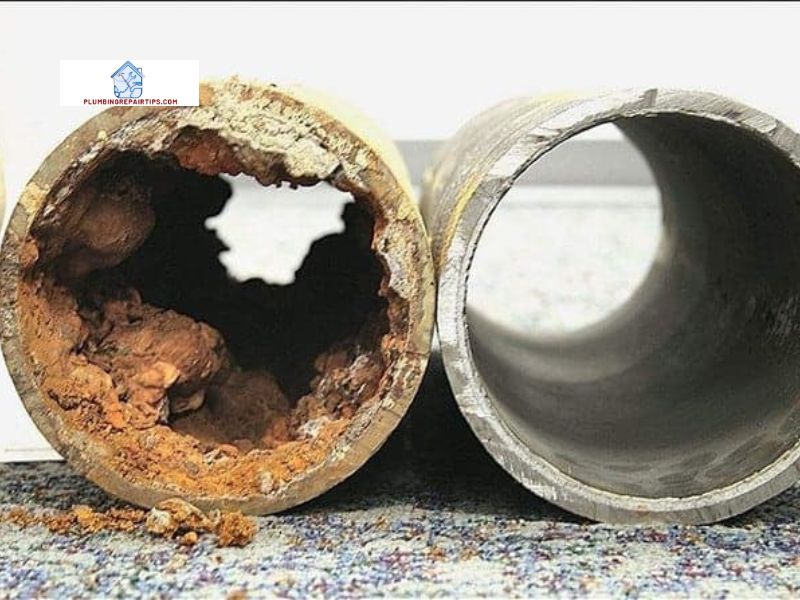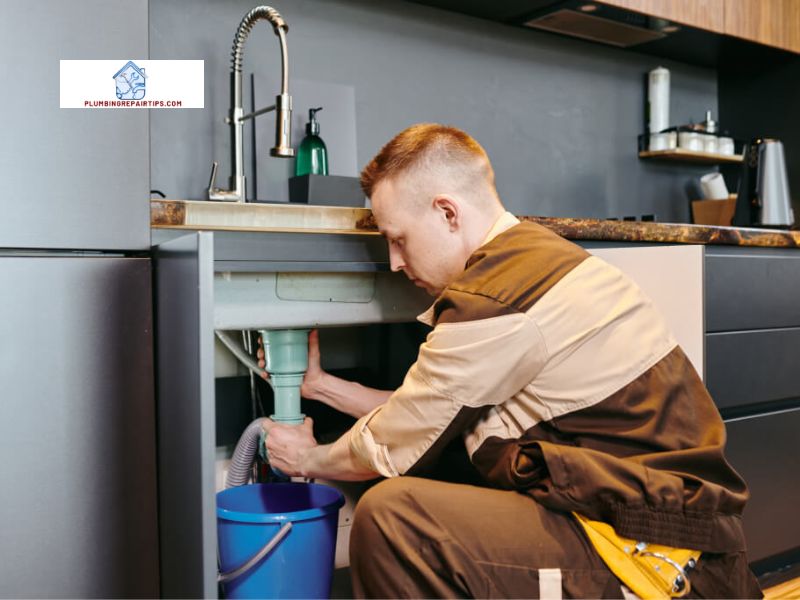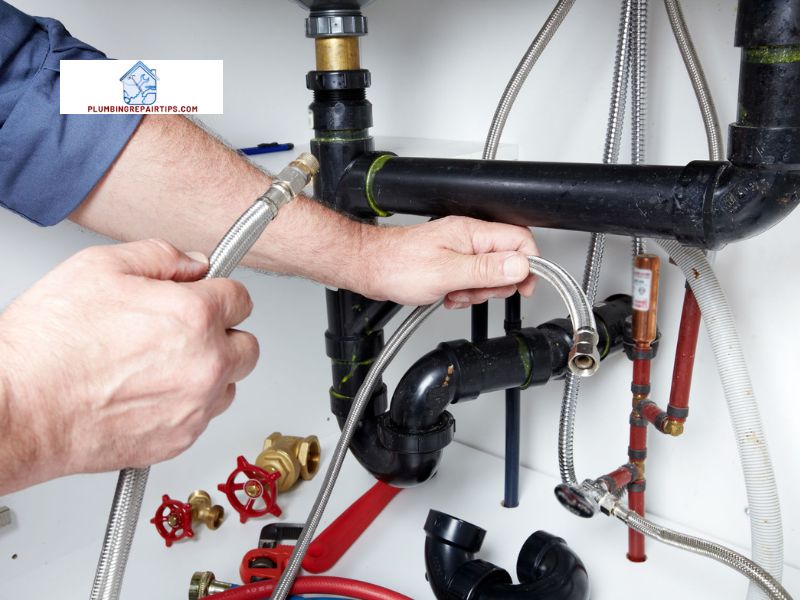Introduction
Garbage disposal – a kitchen appliance designed to shred food waste into small particles, allowing it to pass through the plumbing system easily. It offers convenience and helps maintain cleanliness in the kitchen. But what happens when your garbage disposal starts leaking? This article from plumbingrepairtips.com will delve into the common issue of garbage disposal leaking, its causes, solutions, and prevention techniques.
A properly functioning garbage disposal is essential for maintaining a clean and hygienic kitchen environment. It efficiently eliminates food waste, reducing unpleasant odors and preventing the accumulation of rotting debris in your trash can. However, when a leakage occurs, it can lead to a range of problems, from water damage to costly repairs.
Common Issue: Garbage Disposal Leaking
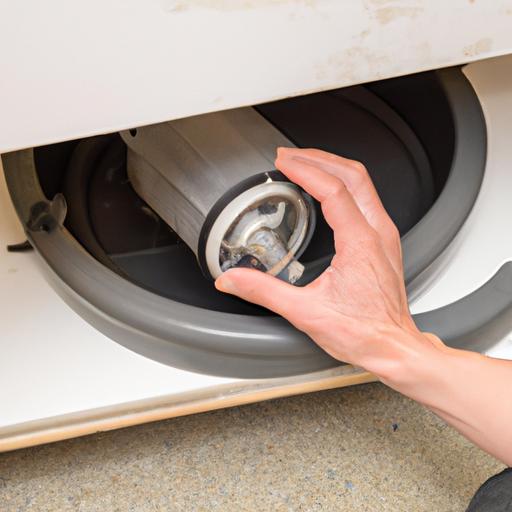
One of the most prevalent issues homeowners face with their garbage disposals is a leakage. Whether it’s a small drip or a significant flow, a leaking garbage disposal is not only inconvenient but also potentially damaging to your kitchen. Identifying the cause of the leak and taking prompt action can save you from a headache and costly repairs down the line.
In the following sections, we’ll explore the various causes of a leaking garbage disposal, signs to watch out for, steps to fix the issue, and practical prevention tips to avoid future leaks. By understanding the root causes and implementing preventive measures, you can ensure your garbage disposal operates smoothly and avoid the hassle of dealing with leaks.
Now, let’s dive into the details of what causes a garbage disposal to leak and how to address this issue effectively.
Causes of a Leaking Garbage Disposal
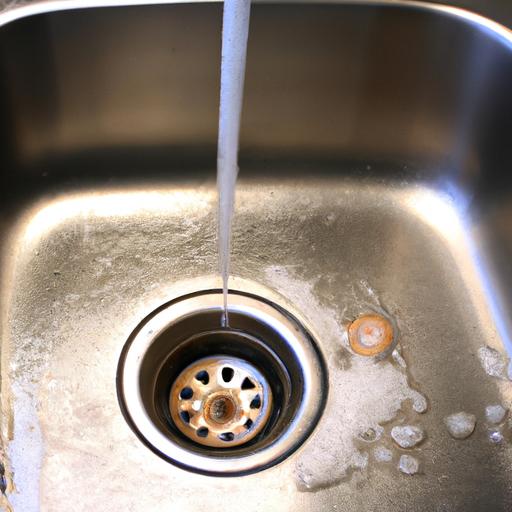
Faulty Seals or Gaskets
One common cause of a leaking garbage disposal is faulty seals or gaskets. Over time, these rubber components can deteriorate, leading to leaks. Seals and gaskets are essential for preventing water from seeping out of the disposal and into your kitchen cabinets. If you notice water pooling around the base of your garbage disposal, it may indicate a seal or gasket issue.
Loose or Damaged Plumbing Connections
Another culprit behind a leaking garbage disposal is loose or damaged plumbing connections. These connections include the pipes that connect the disposal unit to the sink drain and the dishwasher. If these connections are loose or have worn-out washers, water can escape and cause leaks. Inspecting and tightening these connections can often resolve the issue.
Cracked or Corroded Garbage Disposal Unit
A cracked or corroded garbage disposal unit can also be responsible for leaks. Over time, the disposal unit can develop cracks due to excessive wear and tear or accidental impact. Additionally, corrosion can occur, weakening the unit’s structure and causing leaks. If you notice water leaking from the body of the disposal itself, it may be necessary to repair or replace the unit.
Excessive Wear and Tear
Constant usage of your garbage disposal can lead to excessive wear and tear, which can contribute to leaks. The internal components, such as the blades, motor, and housing, can deteriorate over time, creating gaps and openings for water to escape. Regular maintenance, proper usage, and avoiding overloading the disposal can help reduce wear and tear and minimize the chances of leaks.
By understanding these potential causes of a leaking garbage disposal, you can take appropriate measures to address the issue effectively. In the next section, we will explore the signs that indicate your garbage disposal may be leaking.
Now, let’s move on to Section 3 and discover the signs that indicate a leaking garbage disposal.
Steps to Fix a Leaking Garbage Disposal
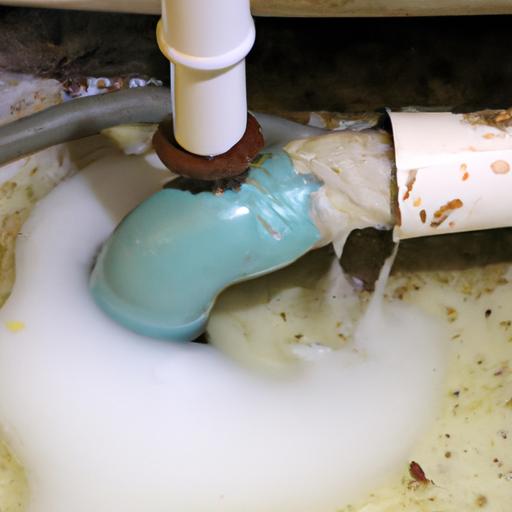
A leaking garbage disposal can be a frustrating problem, but fortunately, there are steps you can take to address the issue. By following these simple yet effective steps, you can restore the functionality of your garbage disposal and prevent further leaks.
A. Turn off the power supply
Before attempting any repairs, it is crucial to ensure your safety by turning off the power supply to the garbage disposal. Locate the circuit breaker or the switch connected to your disposal unit and switch it off to avoid any electrical mishaps during the repair process.
B. Inspect and tighten plumbing connections
Start by examining the plumbing connections around the garbage disposal. Over time, these connections can become loose or damaged, resulting in leaks. Using a wrench or pliers, carefully tighten any loose connections. If you notice any cracks or damage, consider replacing the affected parts.
C. Replace faulty seals or gaskets
Faulty seals or gaskets are often the culprits behind a leaking garbage disposal. These rubber components can wear out over time, leading to water seepage. To replace them, disconnect the disposal unit from the mounting assembly and carefully remove the old seals or gaskets. Install new ones in their place, ensuring a snug fit.
D. Repair or replace a cracked or corroded unit
If your garbage disposal unit itself is cracked or corroded, repairs may be necessary. Small cracks can sometimes be repaired using epoxy or sealants specifically designed for plumbing repairs. However, in more severe cases, it may be necessary to replace the entire unit to ensure a long-term solution.
E. Test for leaks and ensure proper functioning
After completing the necessary repairs or replacements, it’s important to test the garbage disposal for leaks. Turn on the water and observe the unit closely. Check for any signs of water leakage around the connections and beneath the sink. If no leaks are detected, you can proceed to test the functionality of the disposal by running water and food waste through it.
By following these steps, you can effectively fix a leaking garbage disposal and restore its proper functioning. However, if you’re unsure or uncomfortable with performing these repairs yourself, it’s always best to seek the assistance of a professional plumber to avoid any further complications.
Prevention Tips to Avoid Garbage Disposal Leaks
To prevent the hassle and potential damage of a leaking garbage disposal, follow these essential tips:
A. Regular maintenance and cleaning
Regular maintenance is crucial for keeping your garbage disposal in top-notch condition. Here’s what you can do to ensure its longevity:
- Clean it regularly: Flush the disposal with a mixture of ice cubes and rock salt to remove buildup and maintain its grinding efficiency.
- Use citrus peels: Toss citrus peels into the disposal and run cold water to freshen up the unit and combat unpleasant odors.
- Maintain sharp blades: Occasionally grind small chicken or fish bones to sharpen the disposal’s blades and prevent clogs.
B. Avoid putting non-food items or hard materials into the disposal
To prevent damage to your garbage disposal and potential leaks, it’s essential to only dispose of suitable food waste. Avoid putting the following items into the disposal:
- Non-food items: Ensure that only biodegradable food waste enters the disposal. Non-food items can damage the blades or cause blockages.
- Hard materials: Steer clear of disposing of hard materials like bones, fruit pits, or coffee grounds. These can lead to wear and tear or clogs in the system.
C. Run cold water while using the garbage disposal
Running cold water while the garbage disposal is in use provides several benefits:
- Keeps the system cool: Cold water helps prevent overheating of the motor, which can lead to leaks and other malfunctions.
- Solidifies grease and fat: Cold water solidifies grease and fat, preventing them from clogging the plumbing system and causing leaks.
D. Be mindful of the disposal’s capacity
Though garbage disposals are convenient, they have their limitations. To avoid straining the unit and causing leaks, be mindful of its capacity:
- Dispose of small batches: Feed the disposal with small amounts of food waste at a time to prevent overload and potential leaks.
- Cut large items into smaller pieces: Break down large food items into smaller pieces before disposing of them to ease the strain on the disposal’s blades.
By following these prevention tips, you can maintain a leak-free garbage disposal, ensuring a smooth and efficient kitchen experience. Remember, a little maintenance goes a long way in extending the lifespan of this essential kitchen appliance.
Conclusion
In conclusion, addressing a leaking garbage disposal is crucial to maintain a functional and hygienic kitchen. By understanding the causes of leaks and taking prompt action, you can prevent further damage and expensive repairs. Remember, a properly functioning garbage disposal not only eliminates food waste efficiently but also helps keep your kitchen clean and odor-free.
To recap, we discussed the common causes of a leaking garbage disposal, including faulty seals or gaskets, loose or damaged plumbing connections, cracked or corroded units, and excessive wear and tear. It is important to identify the specific cause of the leak before attempting any repairs or replacements.
Regular maintenance and prevention techniques can go a long way in avoiding garbage disposal leaks. By following simple practices such as regular cleaning, avoiding putting non-food items or hard materials into the disposal, running cold water while using it, and being mindful of its capacity, you can extend the lifespan of your garbage disposal and minimize the risk of leaks.
If you find yourself unable to fix the issue or unsure about the cause of the leak, it is recommended to seek professional help. Plumbingrepairtips.com can provide expert assistance in diagnosing and resolving any garbage disposal issues you may encounter.
Remember, a well-maintained garbage disposal is an asset to your kitchen, making your daily cooking and cleaning tasks more convenient. Take the necessary steps to address leaks promptly and implement preventive measures to enjoy a hassle-free experience with your garbage disposal for years to come.
